Ethnic education development policy receives special attention.
Reporting on priority policies for education and training development for ethnic minorities and ethnic minority and mountainous areas at the national workshop "Innovation and improvement of education and training quality in ethnic minority and mountainous areas: current situation, challenges and solutions", Mr. Thai Van Tai, Director of the Department of General Education ( Ministry of Education and Training ) said:
In recent periods, the implementation of ethnic work, including policies on developing ethnic education, has always received special attention from the education sector.
The work of building and perfecting the system of legal documents to specify legal provisions on ethnic policies in education and training is a top priority task of the Ministry of Education and Training.
In particular, focus on reviewing specialized policies on education and training for ethnic minorities and ethnic minority regions to amend, supplement or replace issued legal documents in accordance with the provisions of the Law on Education, the Law on Higher Education and practice.
Policies for developing education and training for ethnic minorities and ethnic minority and mountainous areas are reflected in the Law on Education, Law on Higher Education, Law on Vocational Education, and Law on Teachers.
Government Decrees, Prime Minister's Decisions, and circulars of Ministries and branches have institutionalized support policies for the subjects. These include policies to support children, pupils and students in mountainous areas, ethnic minority areas and areas with particularly difficult socio- economic conditions. Policies related to teachers in ethnic minority areas, mountainous areas and areas with particularly difficult socio-economic conditions aim to attract, stabilize and improve the quality of teachers, contributing to the development of education in these areas.
Currently, the Ministry of Education and Training is researching and developing documents guiding the implementation of the Law on Teachers as assigned by the Government and will continue to perfect regulations on regimes and policies for teachers working in specialized schools, working in areas with particularly difficult socio-economic conditions, teachers teaching Vietnamese to ethnic minority children before entering first grade, teachers teaching ethnic minority languages, etc.
Along with policies for teachers and learners are policies for developing specialized school systems and training human resources in ethnic minority and mountainous areas; policies for developing vocational education for ethnic minority workers; policies for developing and preserving ethnic minority languages; programs and projects being implemented to develop education and training in ethnic minority and mountainous areas. In addition, organizations and individuals also prioritize support for education and training in ethnic minority and mountainous areas.
It can be said that the policies and guidelines for ethnic minorities and mountainous areas have been institutionalized into a system of legal documents that are increasingly complete, relatively complete and synchronous. The beneficiaries have been expanded to ensure fairness in access to education for ethnic minorities.
To implement the policy, the Ministry of Education and Training has directed its units, Departments of Education and Training, and training institutions to disseminate and thoroughly understand the Party and State's policies and guidelines on education and training development in ethnic minority and mountainous areas through the sector's directives and guidelines. Disseminate and thoroughly understand through conferences, seminars, and talks on education and training development policies in ethnic minority and mountainous areas.
Every year, the Ministry of Education and Training organizes inspections of the implementation of ethnic education policies in localities, collects information from the grassroots, detects errors and inadequacies for adjustment.
Based on the Party and State's policies and guidelines, and the Ministry of Education and Training's directives and guidelines, localities have proactively included them in their sector's action programs and issued many documents to specify the goals and tasks of education and training development in the local context. Some localities have issued their own policies to develop education and training for ethnic minorities, ethnic minority areas and mountainous areas.
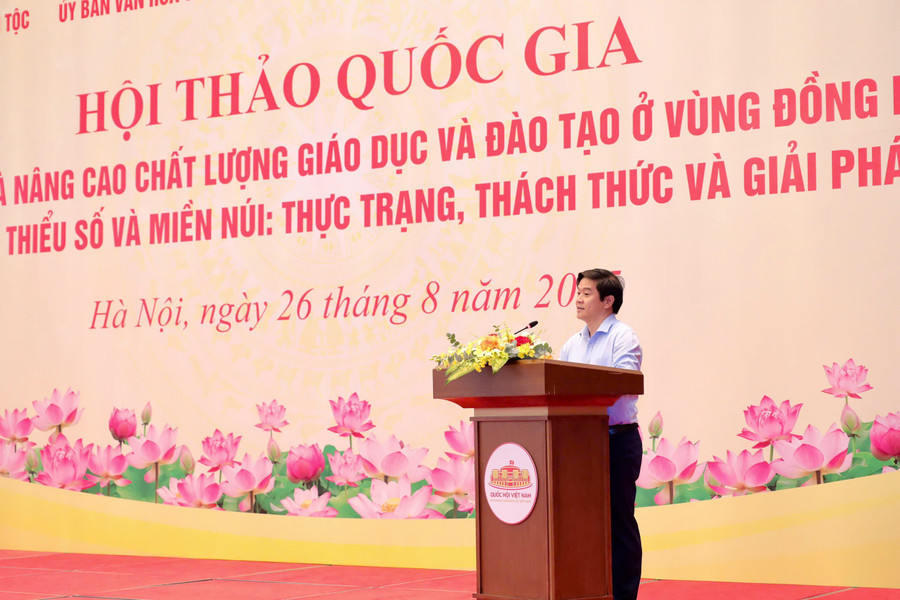
Education and training in ethnic minority and mountainous areas have many changes.
With the special attention of the Party and State; policies and guidelines are institutionalized into a system of increasingly complete, relatively complete and synchronous legal documents; policies are organized and implemented seriously and promptly by all levels, sectors and localities, with the people's consent and support..., the cause of education and training in ethnic minority and mountainous areas has had significant changes:
Firstly, the planning and construction of a network of schools from kindergarten to primary, secondary and high school has been expanded and developed widely in residential areas. Schools have been built in remote villages and hamlets to meet the learning needs of the people.
In particular, the system of specialized schools for ethnic minority and mountainous areas (boarding schools for ethnic minorities, semi-boarding schools for ethnic minorities, and university preparatory schools) has received attention for investment and construction to become more and more spacious, promoting positive effects to gradually improve the quality of teaching and learning, contributing to creating a source of training for cadres and quality human resources for ethnic minority and mountainous areas.
Second, regarding the quality of mass education, the universalization of education in all ethnic minority and mountainous areas has been and is completing its basic goals. The rate of preschool children and students going to school is increasing; the number of primary and secondary school dropouts is decreasing.
On average, in the past 5 years, the rate of mobilizing ethnic minority preschool children (5 years old) to attend class has reached 98% (the national rate is 99%). The rate of mobilizing primary school students of school age nationwide to attend class is 98.31%. The rate of mobilizing primary school students of school age to attend class is 97.25%.
The national rate of junior high school students graduating from junior high school is about 98.40%. For ethnic minority and mountainous areas, the rate of junior high school students graduating from junior high school is 98.24%. The national rate of high school students graduating from high school is 98.40%. For ethnic minority and mountainous areas, the rate of high school students graduating from high school is 98.16%.
The indicators of mass education in ethnic minority areas are approximately the same as the national average, less than 1% lower. However, the rate of advanced education and the rate of going to high school or higher in ethnic minority areas is much lower than the national average.
It can be said that over the past decades, the system of policies to support education in ethnic minority areas has been increasingly improved, supporting from preschool children to university students, bringing great achievements in improving people's knowledge, contributing to socio-economic development and maintaining national security and defense in ethnic minority and mountainous areas.
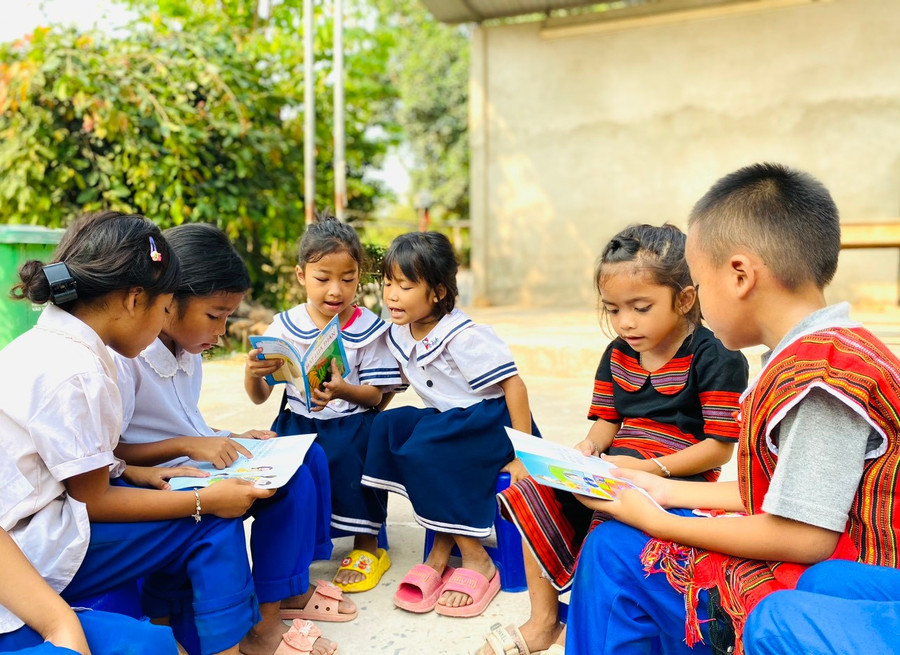
Solutions for developing education and training in ethnic minority and mountainous areas to meet new requirements
Along with the achieved results, the Ministry of Education and Training also identified limitations, inadequacies and causes in policy making and implementation of education and training development policies for ethnic minorities and ethnic minority and mountainous areas; from which it proposed solutions.
Accordingly, strengthen propaganda work on policies for developing education and training in ethnic minority and mountainous areas.
Continue to review, supplement and perfect education and training development policies for ethnic minorities and ethnic minority and mountainous areas.
Specifically, the Ministry of Education and Training proposed to add to the Draft Amendment to the Law on Education (Clause 2, Article 85): “2. The State has policies to subsidize and exempt or reduce tuition fees for learners who are beneficiaries of social policies, ethnic minorities; learners residing in areas with especially difficult socio-economic conditions, ethnic minority and mountainous areas, border communes; orphans; children without support; people with disabilities, people from poor and near-poor households”.
Proposal to add the type of school "Boarding general education" to the Draft Amendment to the Law on Education (Clause 1, Article 61): "1. The State shall establish boarding general education schools, semi-boarding general education schools, boarding general education schools, and university preparatory schools for ethnic minority students; students residing in areas with especially difficult socio-economic conditions, ethnic minority and mountainous areas, and border communes".
Conduct a review, research, and evaluation of the current policy system related to boarding and semi-boarding students and teachers working in land border communes. Timely amend and supplement according to authority or propose competent authorities to amend and supplement regulations in the direction of ensuring that students in land border communes enjoy boarding and semi-boarding policies suitable to the reality of terrain and geographical distance.
Research and develop a model for the organization and operation of a primary and secondary boarding school; policies and conditions to ensure the stable and long-term operation and maintenance of primary and secondary boarding schools.
Develop a plan for arranging appropriate teachers and school staff based on a review of existing staff and future needs.
Review, research, and develop policies to encourage qualified human resources (teachers and school staff) to serve border communes in accordance with new conditions. Amendments, supplements, or new issuance of policies (if any) must ensure feasibility, suitability to practical conditions, effectiveness, efficiency, and compliance with legal regulations;
Continue to review, supplement and improve support policies for children, pupils, students and educational institutions in ethnic minority areas, mountainous areas, especially difficult areas, and land border areas according to the direction of the Central Government. Policies for learners need to be kept stable at all levels of education (according to the zoning decision when students enter the first level)...
Develop priority and support policies for teachers working in specialized schools, ethnic minority areas, mountainous areas, and areas with especially difficult socio-economic conditions (specifying the provisions stipulated in the Law on Teachers)...
Prioritize budget investment in building domestic water lines and public housing for teachers of kindergartens in special mountainous areas, ethnic minority areas, and border areas; have a program to solidify kindergartens in especially difficult areas, border areas, islands, and areas with large ethnic minority populations.
Research and propose policies and mechanisms to encourage socialization to increase social investment for education and training development in general, and education development in ethnic minority, mountainous and particularly disadvantaged areas in particular. Research and propose policies to preserve and develop ethnic minority languages and scripts. Strengthen facilities for boarding schools in border communes.
Source: https://giaoducthoidai.vn/phat-trien-gd-dt-vung-dan-toc-thieu-so-mien-nui-dap-ung-yeu-cau-moi-post745837.html






![[Photo] General Secretary To Lam receives the Director of the Academy of Public Administration and National Economy under the President of the Russian Federation](/_next/image?url=https%3A%2F%2Fvphoto.vietnam.vn%2Fthumb%2F1200x675%2Fvietnam%2Fresource%2FIMAGE%2F2025%2F12%2F08%2F1765200203892_a1-bnd-0933-4198-jpg.webp&w=3840&q=75)


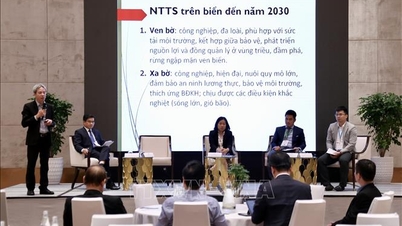

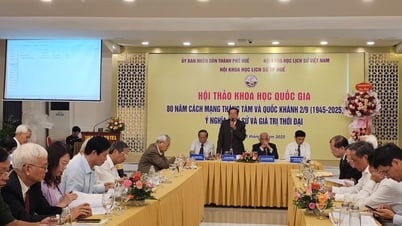

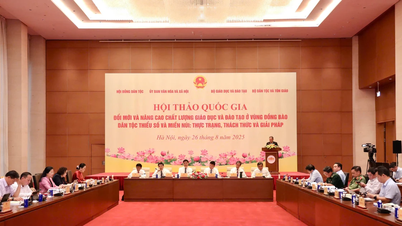
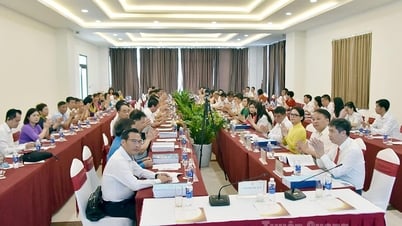







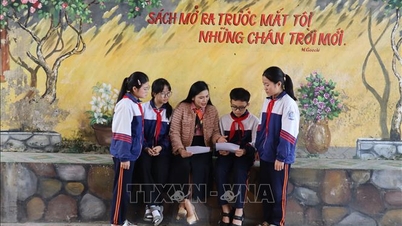
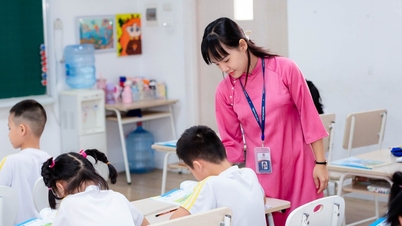


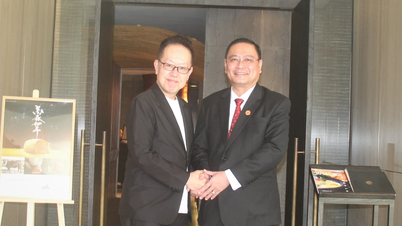





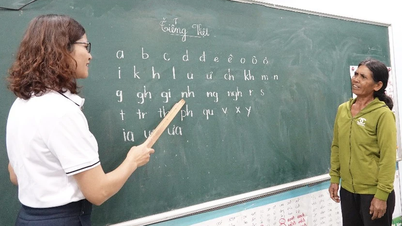
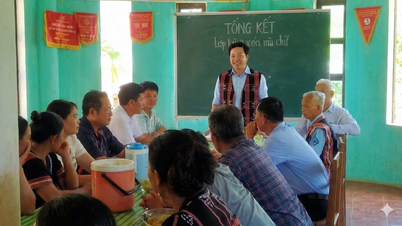
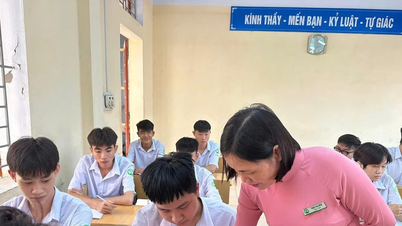
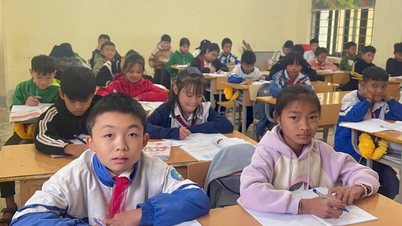






















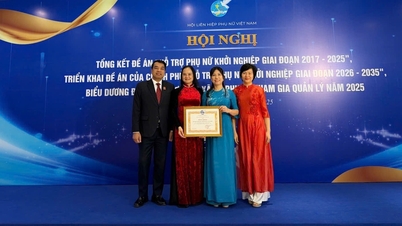














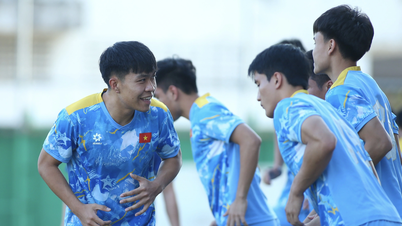

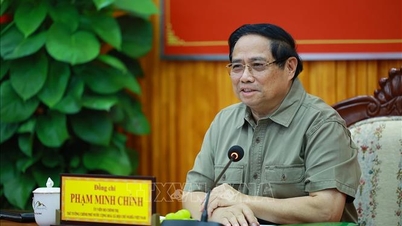
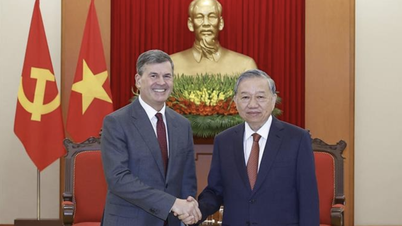


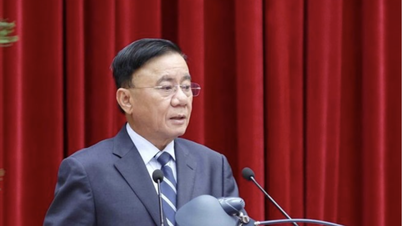


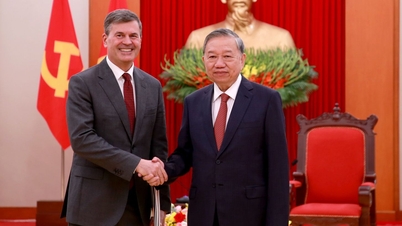






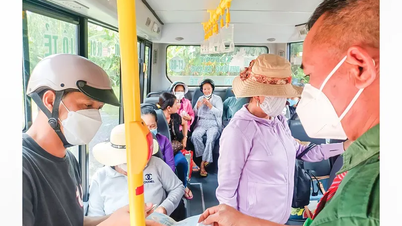



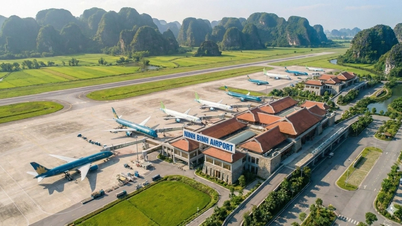

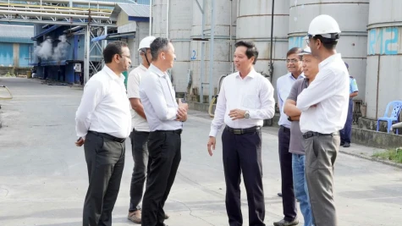

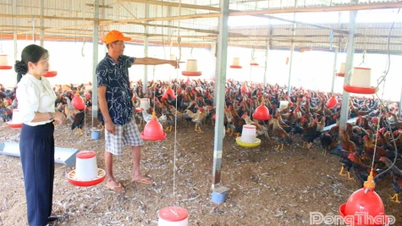
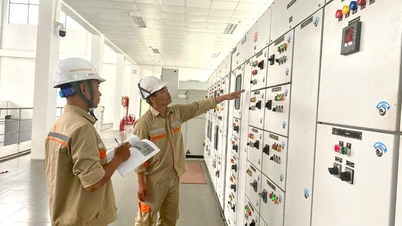

















Comment (0)